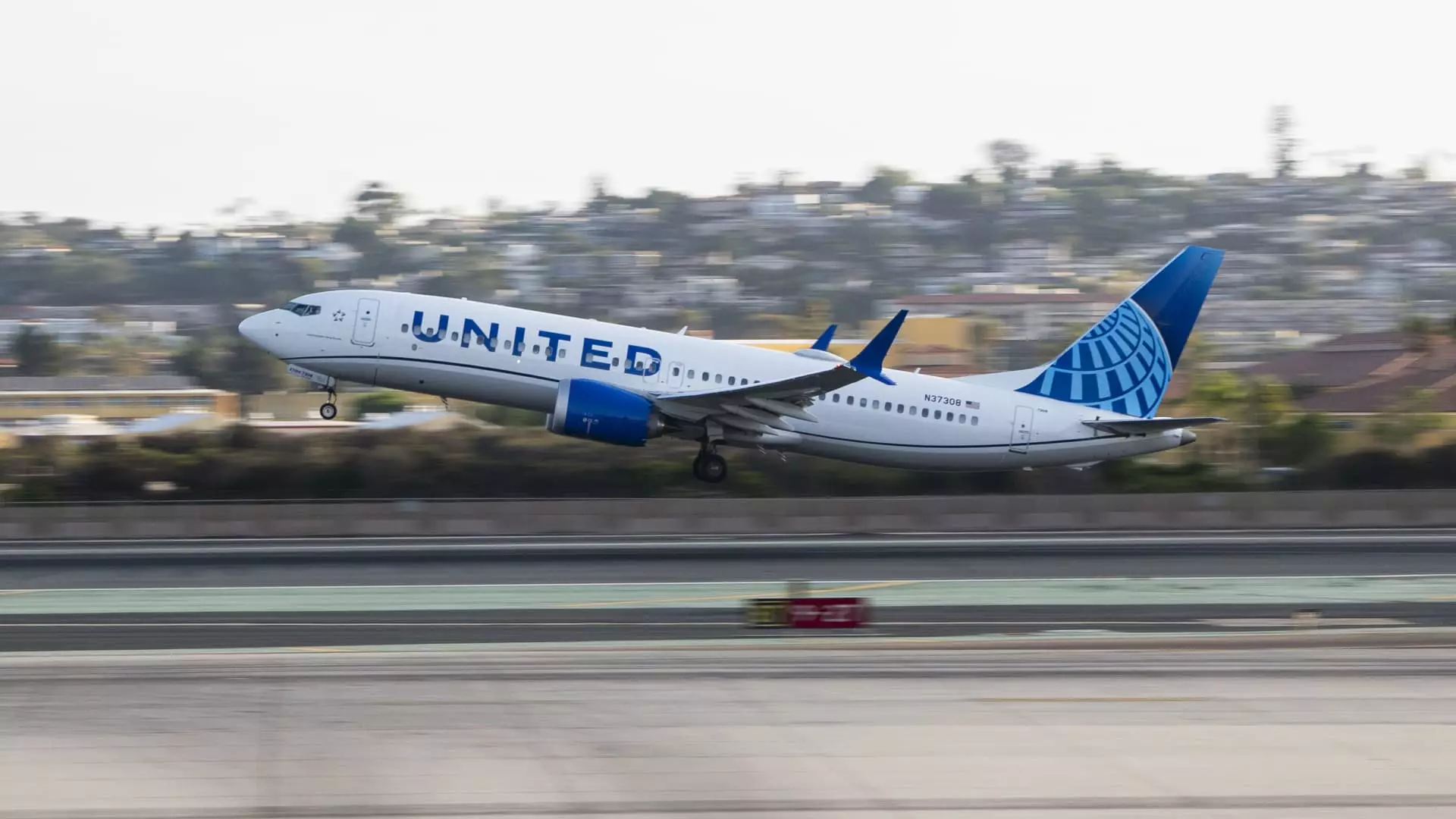United Airlines recently announced a monumental $1.5 billion share buyback initiative, marking an important milestone in its financial recovery following the turbulent years of the pandemic. The announcement comes after the airline reported earnings that exceeded analysts’ expectations for the busy summer travel period, signaling a robust rebound from the crippling effects of COVID-19 on the airline industry. Looking ahead, United projects a strong finish to the year, reinforcing investor confidence and acknowledging the airline’s strategic maneuvers to capitalize on emerging market trends.
In the third quarter of the year, United posted an adjusted earnings per share of $3.33, surpassing the expected $3.17 derived from analysts’ estimates. The airline’s revenue reached an impressive $14.84 billion, reflecting a year-over-year increase of 2.5%. However, it’s important to note that United’s net income saw a decline of 15% compared to the previous year, resulting in a net income of $965 million. This mixed performance highlights the complexities facing the airline as it balances profitability with operational challenges, including the ongoing recovery efforts post-pandemic.
United’s strong financial performance can primarily be attributed to a strategic reduction of flights that previously contributed to fare erosion. The airline’s implementation of measured capacity increases, expanding by 4.1%, has effectively led to improved unit revenue that was particularly positive in the latter months of summer. Additionally, notable growth in premium revenue and corporate travelers suggests a renewed interest from business clients, further diversifying United’s revenue sources.
The decision to initiate a share buyback program also serves as a signal of confidence in the airline’s financial health and future growth prospects. Scott Kirby, CEO of United Airlines, reinforced this sentiment in a note to staff, stating that while the program is being instituted, investing in employees and the business remains a priority. This delicate balance between rewarding shareholders and reinvesting in the workforce indicates a forward-thinking approach that aims to foster long-term stability and growth.
It’s particularly noteworthy that this will be United’s first share buyback since the onset of the pandemic. The significant financial support—over $50 billion—received by U.S. airlines during the pandemic created constraints on share repurchase and dividends. As recovery takes hold, many other airlines, such as Southwest Airlines, are simultaneously launching similar initiatives, indicating a collective upward trend within the industry.
United’s announcements extend beyond immediate financial strategies; they also encompass ambitious plans for global expansion. The airline has unveiled plans for new routes to diverse locations, including Mongolia, Senegal, and Spain, demonstrating an eagerness to capitalize on international travel demand. This strategic expansion could position United favorably in a recovering global travel market, especially as consumers resume long-awaited travel plans.
However, challenges remain, particularly regarding production issues at Boeing, which have been exacerbated by a lengthy machinist strike. A considerable number of factories have been idled, which may affect United’s ability to scale its fleet and meet anticipated travel demand efficiently. This aspect brings an additional layer of complexity to United’s operational strategy as it navigates potential delays in aircraft deliveries.
United Airlines is clearly on a strategic Growth trajectory fueled by robust earnings, confidence through share repurchase programs, and an ambitious expansion plan. While it faces certain operational challenges that could impact future performance, the airline’s focus on financial stability and commitment to its workforce lays a strong foundation for sustained recovery. As the airline industry continues its rebound, United’s actions reflect a keen awareness of market dynamics and a readiness to adapt, ensuring that it remains competitive in the ever-evolving landscape of air travel.


Leave a Reply